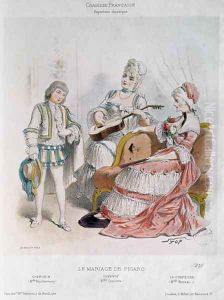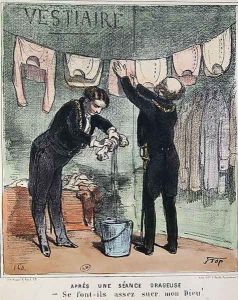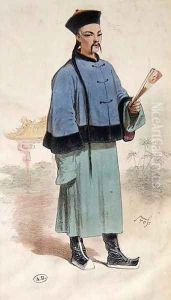Louis Morel-Retz Stop Paintings
Louis Morel-Retz, known by his pseudonym Stop, was a French caricaturist and illustrator born on March 21, 1825, in Paris. He came from a middle-class family and displayed an early talent for drawing and caricature. Stop initially studied law, following his family's wishes, but he soon abandoned this path to focus on his passion for art.
He began his artistic career contributing to various humorous publications such as 'Charivari' and 'Le Journal pour rire', where he became known for his satirical lithographs that commented on social and political issues of the day. His works often reflected the spirited and sometimes tumultuous atmosphere of the French capital during the 19th century, particularly the Second French Empire and the beginnings of the Third Republic.
Stop's caricatures were notable for their sharp wit and keen observation of character, which made them popular among a wide audience. He developed a distinctive style that was characterized by its bold lines and dynamic composition. His artwork captured the essence of his subjects with both humor and a critical edge, which became his trademark.
Throughout his career, Stop continued to contribute to various magazines and journals, and he also produced several albums of caricatures. His work was not limited to political satire; he also created illustrations for books and made contributions to the evolving field of comic strips. Despite the popularity of his work, Stop maintained a relatively low profile, choosing to let his art speak for itself.
Louis Morel-Retz Stop passed away on October 6, 1899. Although not as widely remembered as some of his contemporaries, such as Honoré Daumier or Gustave Doré, Stop's contributions to the art of caricature and illustration have secured him a place in the history of French art. His works continue to be studied and appreciated for their historical value and their sharp commentary on the society of his time.


